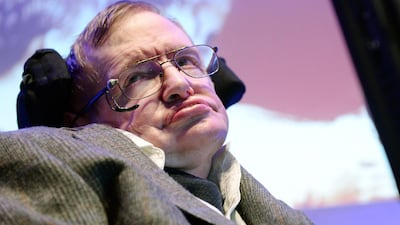Stephen Hawking once said: "However bad life may seem, there is always something you can do, and succeed at. While there is life, there is hope." The world-renowned British physicist, who died peacefully yesterday aged 76, was the living embodiment of that sentiment. Born 300 years to the day after the death of Galileo Galilei, the architect of modern science, Hawking overcame extraordinary adversity to triumph in his field. It was in 1963, that the physics student was diagnosed with motor neurone disease and given two years to live. He would defy the odds, living for a further five decades, though confined to a wheelchair and unable to speak unaided. While a weaker person may have struggled to find purpose, Hawking never wavered, breaking new ground on his mission to understand the universe, its origins and why it exists at all. "My expectations were reduced to zero when I was 21," he famously remarked. "Everything since then has been a bonus." His force of will is truly an inspiration to us all.
Hawking found renown among his colleagues for his ground-breaking research uniting the study of space and time with quantum theory – the behaviour of the smallest particles – to prize insights about cosmology, time and space. His "theory of everything", after which an acclaimed recent film about him is named, sought to establish well-defined laws that govern the universe. Outside of the scientific community, Hawking is legendary for popularising complex scientific theories and delighting ordinary people with its magic, filling auditoriums with his impassioned lectures on cosmology. A Brief History of Time, published in 1988, is one of the highest selling science books of all time, while Hawking's trademark synthetic voice has attracted its own cult following. Determined to inspire interest in space travel, in 2007 he became the first quadriplegic to experience weightlessness in a zero gravity simulator.
But despite his remarkable mind, like all humans Hawking was flawed. He shocked friends and family in 1995 when he divorced his devoted wife, who had cared for him for two decades, before marrying one of his nurses. The fallibility of this genius offers an important message for young people in a world where the famous take pains to sanitise their public profiles. Aware of the platform his fame afforded, he never shied away from controversy, reportedly rejecting a knighthood in the 90s over UK government funding for science. More recently he criticised the populist rebellion that saw Britain vote to leave the EU and the election of US President Donald Trump. But ultimately it was Hawking's scientific achievement and force of will in the face of indescribable adversity that made him extraordinary. He will rightly go down in history as one of the greatest minds and most inspirational figures if his generation.

